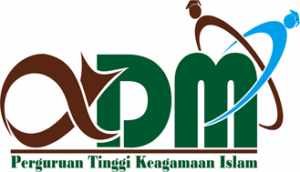Low achievers and the quest for institutional standard in mathematics education: A phenomenology of subject matter experts’ opinions from Nigerian higher education
Abstract
This study adopts a phenomenological paradigm to present mathematics experts’ opinions on the existence of low achievers in Nigeria’s higher education system. Six career mathematicians volunteered from among the participants at a conference of one of Nigeria’s elite academic group to give their in-depth opinion on the role of educational institutions in handling low achievers, their impact on Nigeria’s quest for quality education, and personal approaches for managing low achievers in the mathematics classroom. The explication of the responses of the mathematics experts indicates concerns about the admission system of higher educational institutions and some pertinent pedagogical inadequacies of pure mathematicians. The study also revealed that the continual existence of low achievers in the discipline encourages high rate of dropping-out, poor quality of mathematics educators, and examination malpractice. Participants suggest counseling intervention, retraining of mathematics lecturers in teaching methodologies, and special mindset-boosting programmes as ways of handling low achievers in mathematics education. The phenomenology also unveiled certain unintended outcomes that may form the basis for future research into the peculiar attitudinal characteristics of academic mathematicians.
Keywords
Full Text:
PDFReferences
Abah, J. A. (2017). Original higher education experience of graduating students of mathematics education in Nigeria: An autoethnographic approach. Education Journal, 6(6), 177-187.
Abah, J. A. (2018). Academic outcomes in language-dependent and computation-dependent courses among mathematics education students in a Nigerian university: Top-achievers still best of both extremes. Journal of Education & Social Science (JESS), 6(2), 64-81.
Abah, J. A., Awen, D. A., & Kuse, N. C. (2018). Correlating university students’ academic attainment and sense of hope in science education: A survey from a Nigerian university. International Journal of Education and Knowledge Management (IJEKM) 1(3), 1-17.
Abah, J. A., Age, T. J., & Agada, G. I. (2019). Determinants of mathematics-related career choice among senior secondary school students in Makurdi metropolis, Benue State, Nigeria. International Journal of Social Sciences, Humanities and Education (IJSSHE), 3(1), 1-16.
Abakpa, B. O., Agbo-Egwu, A. O., & Abah, J. A. (2017). Emphasizing phenomenology as a research paradigm for interpreting growth and development in mathematics education. ABACUS: The Journal of the Mathematical Association of Nigeria, 42(1), 391-405.
Adewuyi, E. (2012). The purpose driven achiever: Causes and effects of examination malpractice. Retrieved on 16th May, 2017 from http://www.thepurposedrivenachiever.com/2012/11/causes-and-effects-of-examination.html
Ahmadu, F. S. (2016). Examination malpractice in Nigeria’s tertiary institutions. Retrieved on 16th May, 2017 from http://authorityngr.com/2016/02/Examination-malpractice-in-Nigeria-s-tertiary-institutions/
Alabi, A. T., & Abdulkareem, A. Y. (2012). Managing examination malpractice in Nigerian University system using strategic management policy. Nigerian Journal of Guidance and Counselling, 17(1), 23-29.
Anyagh, P. I., Honmane, O., & Abah, J. A. (2018). Secondary school students’ perception of teachers’ attitude towards learning in mathematics in Wukari Metropolis, Taraba State, Nigeria. International Journal of Research and Review, 5(5), 69-75.
Aspers, P. (2004). Empirical phenomenology: An approach for qualitative research. Papers in Social Research Methods, Qualitative Series 9, 1-15.
Barnes, H. (2005). The theory of realistic mathematics education as a theoretical framework for teaching low attainers in mathematics. Pythagoras, 61, 42-57.
Bevan, M. T. (2014). A method of phenomenological interviewing. Qualitative Health Research, 24(1), 136-144.
Bleuer, J. C., & Walz, G. R. (2003). New perspectives on counselling underachievers. ERIC Digest. Retrieved on 20th May, 2017 from https://www.ericdigests.org/2003-4/undrachievers.html
Broomé, R. E. (2011). Descriptive phenomenological psychological method: An example of a methodology section from a doctoral dissertation. San Francisco, California: Saybrook University.
Carbonaro, W. (2005). Tracking students’ effort and academic achievement. Sociology of Education, 78(1), 27-49.
Chuckwu, E. O., Tarnongu, I. J., Mesuur, F. T., Achukwu, C. E. & Terkuma, C. (2017). Assessment of the effectiveness of postgraduate diploma in education (PGDE) programme in meeting the job needs of teachers in Gboko, Benue State, Nigeria. International Journal of Education, Culture and Society, 2(2), 69-75.
Creemers, B. P. M., & Kyriakides, L. (2010). School factors explaining achievement on cognitive and affective outcomes: Establishing the dynamic model of educational effectiveness. Scandinavian Journal of Educational Research, 54(3), 263-294.
Devers, A. (2015). Thinking about intelligence: How student mindsets influence academic performance. Retrieved on 30th April, 2017 from http://www.smcm.edu/mat/wp-content/uploads/sites/73/2015/06/Allyson-Devers-2015.pdf
Dweck, C. S., Walton, G. M., & Cohen, G. L. (2014). Academic tenacity: Mindsets and skills that promote long-term learning. Seattle, Washington, DC: Bill & Mellinda Gates Foundation.
Finlay, L. (2009). Debating phenomenological research methods. Phenomenology & Practice, 3(1), 6-25.
Giorgi, A. (2007). Concerning the phenomenological methods of Husserl and Heidegger and their application in psychology. Collection du Cirp, 1, 63-78.
Groenewald, T. (2004). A phenomenological research design illustrated. International Journal of Qualitative Methods, 3(1), Article 4. Retrieved on 11th April, 2017 from http://www.ualberta.ca/~iiqm/backissues/3_1/pdf/groenewald.pdf
Haahr, J. H., Nielsen, T. K., Hansen, M. E. & Jakobsen, S. T. (2005). Explaining student performance: Evidence from the international PISA, TIMSS and PIRLS surveys. Taastrup, Denmark: Danish Technological Institute.
Laverty, S. M. (2003). Hermeneutic phenomenology and phenomenology: A comparison of historical and methodical considerations. International Journal of Qualitative Methods, 2(3), 21-35.
Hotulainen, R., Mononen, R., & Aunio, P. (2016). Thinking skills intervention for low-achieving first graders. European Journal of Special Needs Education, 31(3), 360-375.
Iji, C. O., Abah, J.A., & Anyor, J.W. (2017). Impact of cloud services on students’ attitude towards mathematics education in public universities in Benue State, Nigeria. International Journal of Research in Education and Science (IJRES), 3(1), 228-244.
Iji, C. O., Abah, J. A., & Anyor, J. W. (2018). Educational Cloud Services and the Mathematics Confidence, Affective Engagement, and Behavioral Engagement of Mathematics Education Students in Public Universities in Benue State, Nigeria. International Journal of Teaching and Learning in Higher Education, 30(1), 47-60.
Kilpatrick, J. (2008). The development of mathematics education as an academic field. A paper prepared for Plenary Lecture 1 at the Symposium on the occasion of the 100th Anniversary of ICMI held in Rome, 5th-8th March, 2008 (pp 1-18).
Maqsud, M. (2006). Effects of metacognitive instruction on mathematics achievement and attitude towards mathematics of low achievers. Educational Research, 40(2), 237-433.
Marsh, J. (2014). 10 effective tips to teach math for slow learner. Retrieved on 20th May, 2017 from http://edupln.ning.com/m/blogpost?id=4241570%3ABlogPost%3A258686
Mayana, U. (2014). Impact of national teachers’ institute training programmes on the capacity building of primary school teachers in Zamfara State. Doctoral dissertation submitted to Ahmadi Bello University (ABU) Zaria, Nigeria.
McPhail, J. C. (1995). Phenomenology as philosophy and method: Applications to ways of doing special education. Remedial and Special Education, 16(3), 159-165.
Naakaa, T., Abah, J. A., & Atondo, G. T. (2019). Influence of school environmental variables on students’ performance in junior secondary school mathematics in Gwer-East Local Government Area of Benue State, Nigeria. International Journal of Research and Innovation in Social Science (IJRISS), 3(1), 61-70.
National Universities Commission – NUC. (2007). Benchmark minimum academic standards for undergraduate programmes: Education. Abuja: National Universities Commission.
National Universities Commission (2012). Approved/Accredited programmes of Nigerian universities. Abuja: National Universities Commission.
Odili, G. O. (2012). Towards a new paradigm of teaching mathematics in Nigerian universities: The role of mathematics educators. Online Journal of Science Teachers Association of Nigerian (STAN), 47(1).
Omotosho, O. J. (2013a). Assessment of students’performance: Grading systems. Information and Knowledge Management, 3(2), 26-50.
Omotosho, O. J. (2013b). Evaluation of grading systems of some tertiary institutions in Nigeria. Information and Knowledge Management, 3(2), 92-124
Reiss, S. (2009). Six motivational reasons for low achievement. Child & Youth Care Forum, 38(4), 219-225.
Scneider, S., & Lee, Y. (1990). A model for academic success: The school and home environment of East Asian students. Anthropology & Education Quarterly, 21(4), 358-377.
Sriram, R. (2014). Rethinking intelligence: The role of mindset in promoting success for academically high-risk students. Journal of College Student Retention: Research Theory & Practice, 15(4), 515-536.
Steinmayr, R., Meibner, A., Weidinger, A.F., & Wirthwein, L. (2015). Academic achievement. Retrieved on 10th September, 2016 http://www.oxfordbibliographies.com/view/document/obo-9780199756810/obo-9780199756810-0108.xml
Technical Education Quality Improvement Programme (TEQIP) Phase II. (2012). Guidance brief – Improving the academic performance of weak students through the equity action plan. Retrieved on 29th April, 2017 from http://www.npiu.nic.in/PDF/I%20P%20W%20S.zip
Tufford, L., & Newman, P. (2010). Bracketing in qualitative research. Qualitative Social Work, 11(1), 80-96.
United Nations Education, Scientific and Cultural Organization – UNESCO. (2012). Challenges in basic mathematics education. Paris: UNESCO.
Vogell, H., & Fresques, H. (2017). Hidden dropouts: How school make low achievers disappear. Retrieved on 20th May, 2017 from https://www.usatoday.com/story/news/2017/02/21/hidden-dropouts-how-schools-game-system-dumping-underachievers-into-alternative-programs/97708866/
Williams, E. (n.d.). What is the meaning of academic performance? Retrieved on 10th September, 2016 from http://work.chron.com/meaning-academic-performance-17332.html
Wilson, T. D., Damian, M., & Shelton, N. (2002). Improving the academic performance of college students with brief attributional intervention, In J. Aronsn (Ed.), Improving Academic Achievement: Impact of Psychological Factors on Education (pp. 89-108). New York: Academic Press.
DOI: https://doi.org/10.18860/ijtlm.v1i2.6338
Refbacks
- There are currently no refbacks.
Copyright (c) 2019 International Journal on Teaching and Learning Mathematics

This work is licensed under a Creative Commons Attribution-NonCommercial-ShareAlike 4.0 International License.
International Journal on Teaching and Learning Mathematics is powered by Open Journal Systems Department of Mathematics Education |
Information:
| Address | : Jalan Gajayana 50 Malang, Jawa Timur, Indonesia 65144 | ||
| Phone/Fax | : (0341) 552398 | ||
| Website | : ejournal.uin-malang.ac.id/index.php/ijtlm | ||
| View Stats | : | ||
| : ijtlm@uin-malang.ac.id | |||
| p-ISSN | : 2621-2188 | ||
| e-ISSN | : 2621-2196 |
Indexed by :
 |  |  |
 |  |  |
 |
| | International Journal on Teaching and Learning Mathematics is licensed under |
To ensure the language quality of the manuscript, the authors have to use a professional proofreading service. |



